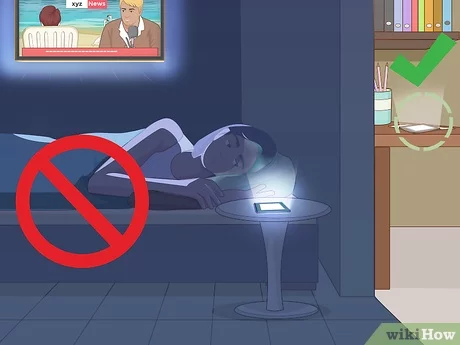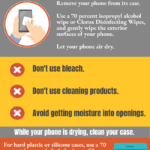Do you feel like you’re constantly attached to your phone, tablet, and computer? Do you feel like you’re losing sight of the world around you? If so, you’re not alone. Disconnecting yourself from electronics can be difficult, but it’s not impossible. In this article, you’ll learn tips and tricks on how to unplug from your devices and reconnect with the real world. You’ll learn how to set boundaries, create a plan, and establish a routine that will help you break the habit of being constantly plugged in. So read on, take a break from your devices, and discover how to disconnect yourself from electronics.
Determine Your Reasons: Before you begin your journey of disconnecting from electronics, take some time to think about why you want to do this
.It is important to take the time to reflect on your motivations for disconnecting from electronics and writing them down. Doing this will help you to stay focused on your goals and provide clarity on why you are making this choice. Reflection can also help you to identify any potential obstacles and create a plan to overcome them.
Whether it is to reduce stress, save time, or become more productive, understanding your reasons will help you set goals and stay motivated.
Disconnecting yourself from electronics can be a great way to reduce stress, save time, and become more productive. Understanding your reasons why you want to disconnect yourself from electronics is essential to setting goals and staying motivated to achieve them.
Set Goals: Establish clear goals that you would like to accomplish by disconnecting from electronics
Setting realistic goals can help you stay on track when disconnecting from electronics. Establishing a clear plan that outlines what you hope to accomplish can ensure you stay focused and motivated as you take a break from technology.
This could include things like using a certain amount of time each day to be completely unplugged, avoiding certain distractions like social media, or staying off your phone during certain activities.
Take a break from electronic devices and reclaim your free time by setting aside a specific amount of time each day to be completely unplugged, reducing or eliminating your use of distracting social media apps, and avoiding using your phone during activities that don’t require it.
Develop a Plan: Once you have your goals in place, create a plan for how you are going to reach them
Developing a plan for disconnecting yourself from electronics can help you be more intentional with your digital device usage. Setting clear goals and boundaries can help you create a plan to limit your device time and focus more on activities that don’t require electronic devices. Establishing an achievable timeline, breaking down your goals into smaller, more manageable tasks, and incorporating accountability measures such as having a friend or family member, or even a professional, help hold you accountable are all important aspects to consider when creating your disconnection plan.
This could include things like setting an alarm to remind yourself when to unplug, turning off notifications, or having designated “no phone” times throughout the day.
Staying connected is important, but it’s also important to take some time to disconnect and unplug. Follow these tips to help you disconnect yourself from electronics and lead a healthier, more balanced life. Start by setting an alarm to remind you when it’s time to unplug, turning off notifications, and designating “no phone” times throughout the day.
Take Breaks: Taking regular breaks from electronics is essential for your mental and physical health

Taking breaks from electronics and digital devices is an important step to maintain healthy mental and physical well-being, as it allows you to focus on other activities that can help you de-stress and relax.
Find activities that you enjoy, whether it is going for a walk, reading a book, or listening to music, and make sure to take at least one break a day.

Discover how to take a break from technology and reconnect with yourself by finding activities that you enjoy and make sure to take at least one break a day.
Track Your Progress: Keeping track of your progress is key for staying

Tracking your progress is essential to keeping yourself disconnected from electronics, as it allows you to monitor your progress and identify areas of improvement. Keeping a record of your progress will also help you stay motivated and on track to reach your goals of reducing your electronics usage.





GIPHY App Key not set. Please check settings